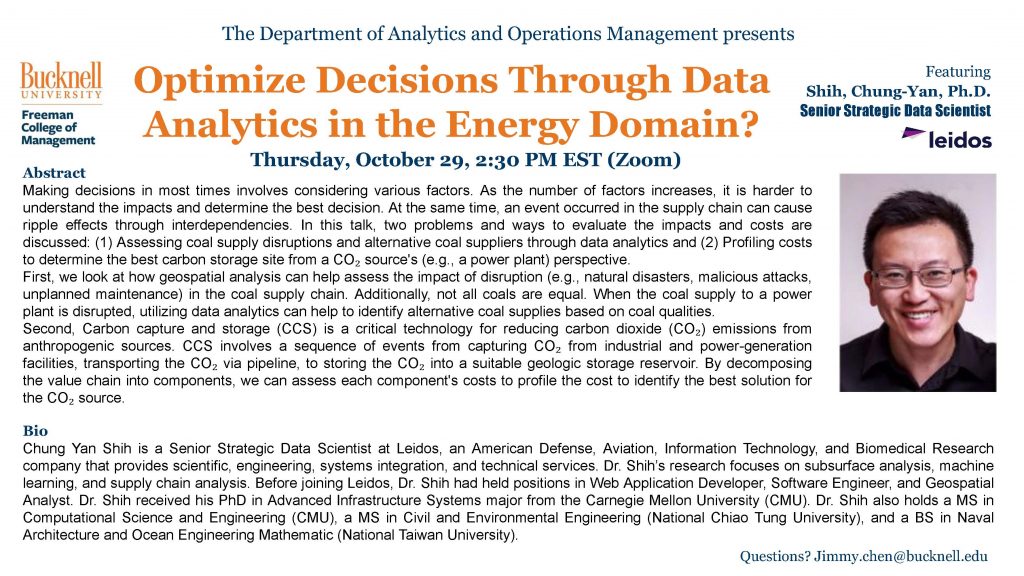Featuring Dr. Chung Yan Shih
A virtual session hosted by the department of Analytics and Operations. RSVP here for Zoom link.

Abstract:
Making decisions in most times involves considering various factors. As the number of factors increases, it is harder to understand the impacts and determine the best decision. At the same time, an event occurred in the supply chain can cause ripple effects through interdependencies. In this talk, two problems and ways to evaluate the impacts and costs are discussed: (1) Assessing coal supply disruptions and alternative coal suppliers through data analytics and (2) Profiling costs to determine the best carbon storage site from a CO₂ source’s (e.g., a power plant) perspective.
First, we look at how geospatial analysis can help assess the impact of disruption (e.g., natural disasters, malicious attacks, unplanned maintenance) in the coal supply chain. Additionally, not all coals are equal. When the coal supply to a power plant is disrupted, utilizing data analytics can help to identify alternative coal supplies based on coal qualities.
Second, Carbon capture and storage (CCS) is a critical technology for reducing carbon dioxide (CO₂) emissions from anthropogenic sources. CCS involves a sequence of events from capturing CO₂ from industrial and power-generation facilities, transporting the CO₂ via pipeline, to storing the CO₂ into a suitable geologic storage reservoir. By decomposing the value chain into components, we can assess each component’s costs to profile the cost to identify the best solution for the CO₂ source.
Bio
Chung Yan Shih is a Senior Strategic Data Scientist at Leidos, an American Defense, Aviation, Information Technology, and Biomedical Research company that provides scientific, engineering, systems integration, and technical services. Dr. Shih’s research focuses on subsurface analysis, machine learning, and supply chain analysis. Before joining Leidos, Dr. Shih had held positions in Web Application Developer, Software Engineer, and Geospatial Analyst. Dr. Shih received his PhD in Advanced Infrastructure Systems major from the Carnegie Mellon University (CMU). Dr. Shih also holds a MS in Computational Science and Engineering (CMU), a MS in Civil and Environmental Engineering (National Chiao Tung University), and a BS in Naval Architecture and Ocean Engineering Mathematic (National Taiwan University).
Please contact Professor Jimmy Chen (jimmy.chen@bucknell.edu) with questions.